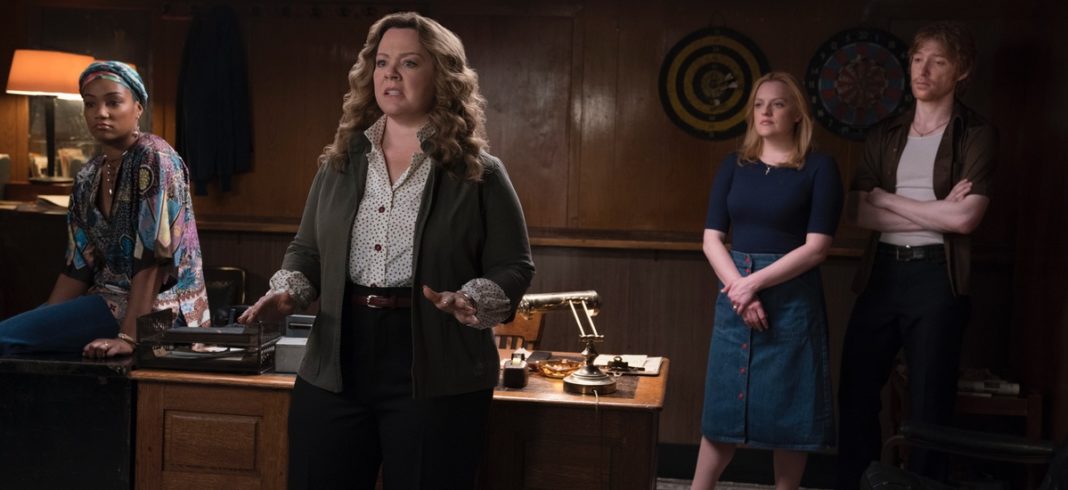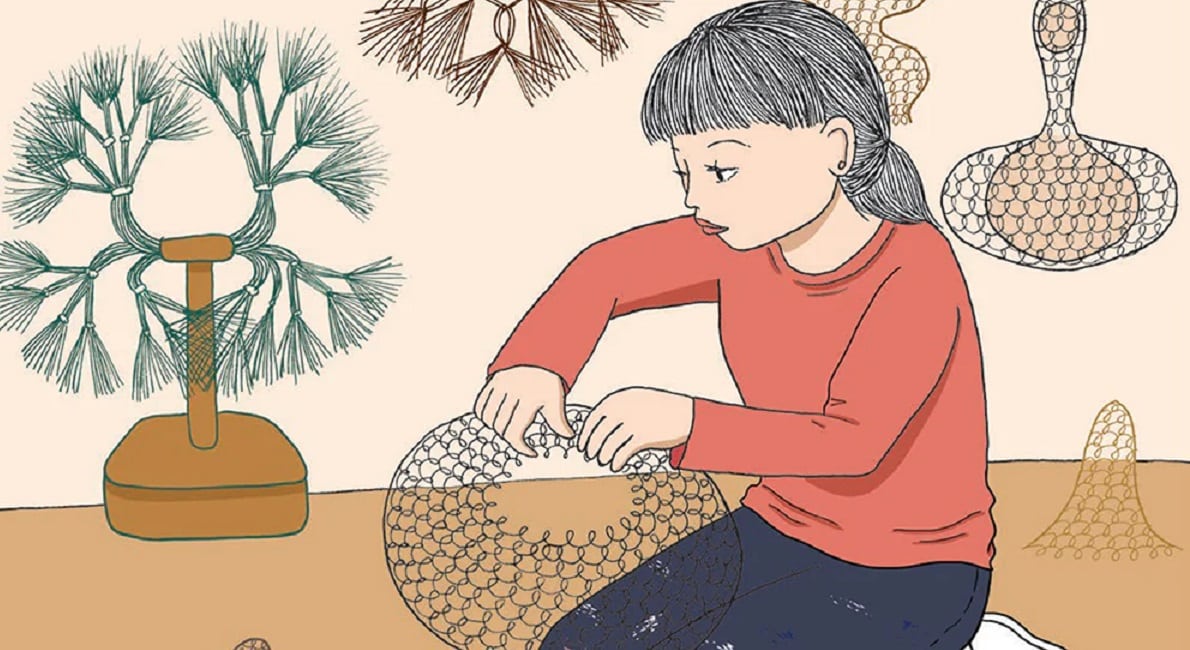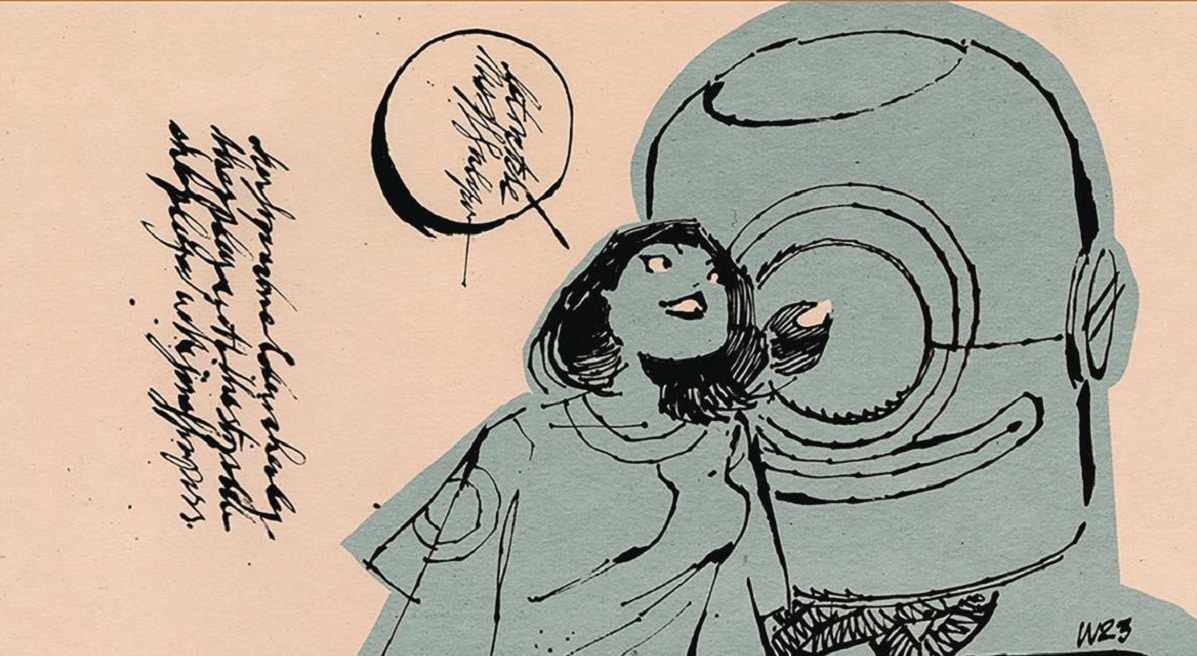Anyone who regularly reads The Beat already knows about all the great storytelling that can be found in the graphic novel medium. Every time one sits through a bad summer sequel or remake, it’s hard not to wonder why Hollywood isn’t making more of an effort to adapt non-superhero comics since there’s so many original ideas out there. A number of great films have already come out of crime graphic novels, including David Cronenberg’s A History of Violence and The Road to Perdition. Sadly, The Kitchen, based on Ollie Masters and Ming Doyle’s 2014 Vertigo series, will not be joining those illustrious films, but maybe it’s as much my own failings as the movie’s?
The basic premise takes place in late ‘70s Hell’s Kitchen, New York, where three principles in the local Irish gang are sent to prison, leaving their wives struggling to make ends meet. The mob isn’t really taking care of them, so they decide to fulfill their husbands’ “insurance” deals with local vendors to collect the money owed. Melissa McCarthy’s Kathy Brennan has kids and the most loving relationship of the three women, while Tiffany Haddish’s Ruby married into the Irish family, much to the judgment of her mother-in-law (Margot Martindale). Claire Walsh (Elisabeth Moss) has been in an abusive relationship where her husband Rob (Jeremy Bobb) is constantly beating on her, so his jail sentence gives her a chance for a respite to discover herself.
For those who love the gangster films of Scorsese, Coppola and all the ones they’ve influenced, The Kitchen certainly offers something different, while at the same time trying to maintain the things that make these movies work. At times, it feels like it’s fighting with that very dichotomy from the jump.
It’s not like the source material for The Kitchen is that great. It was eight issues that came out and probably didn’t have very much impact on anyone other than filmmaker Andrea Berloff, who makes her directorial debut working from her own adaptation.
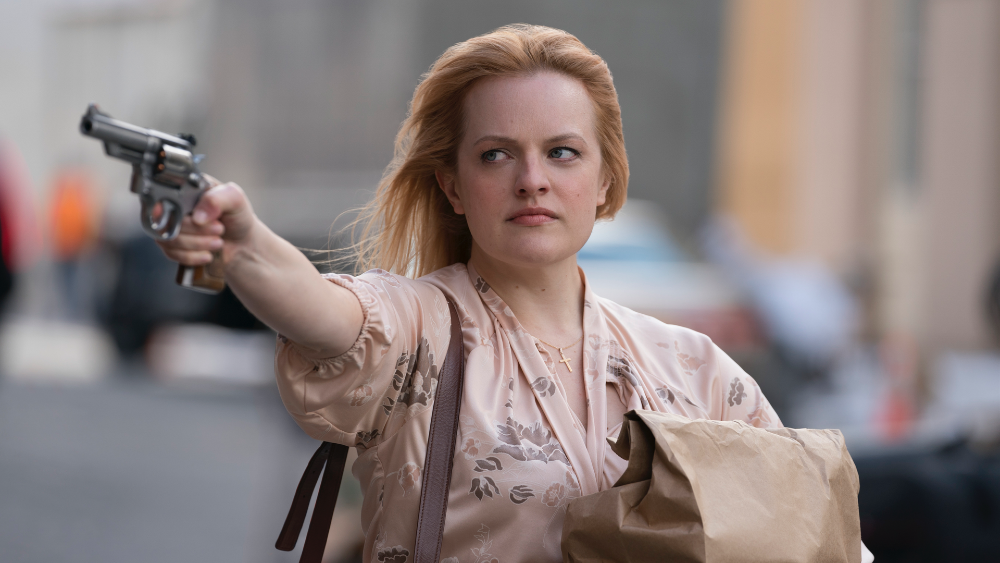
She’s assembled a great cast, and it works fine with McCarthy and Haddish toning down their normal humor for their roles to interesting effect. Even so, Elisabeth Moss seems to be better fit with the material than either of the other actors, the arc of her character being a far more compelling one since she seems to go through a real change. Domhnall Gleeson plays a hitman who helps the ladies but ends up in a romantic relationship with Moss, which adds greatly to why her storyline through the film is always the most interesting.
There are very few times when I ever see Margo Martindale in a movie or show and just don’t like her character, but that’s the case here as her crime family matriarch suffers from her less-than-great accent.
Despite this being focused on the women, The Kitchen is by no means a “softer” gangster movie as there’s a particularly brutal rape that comes out of nowhere but it’s by a character you expect to play a larger part in the conflict the women face. His quick removal from the equation is jarring since you expect that he will play a large part in the conflict. Even when Bill Camp shows up with a fantastic role as Alfonso Coretti, head of the competing Italian mob, his presence doesn’t offer enough to make up for the movie’s weaker moments before that.
There’s certainly a degree of authenticity to the way New York of the late ‘70s is depicted, although the musical choices tend to go the nostalgia route, and it’s odd to see a filmmaker trying to do something that filmmakers like Scorsese and Tarantino have mastered, whereas here, the use of songs like Fleetwood Mac’s “The Chain” feels forced, at least the first time it’s used to pump up a montage.
What makes reviewing The Kitchen challenging is that maybe my issues with it come from the fact the movie didn’t meet up to my own personal expectations for the genre, having been so inured to male-written, directed and dominated gangster movies. Maybe I didn’t get it, because I never was supposed to get it — Berloff certainly didn’t make this movie for me, and maybe the same is true about the comic book. Part of me would like to think that women might watch The Kitchen with completely different eyes than me and possibly accept some of the decisions I didn’t like.
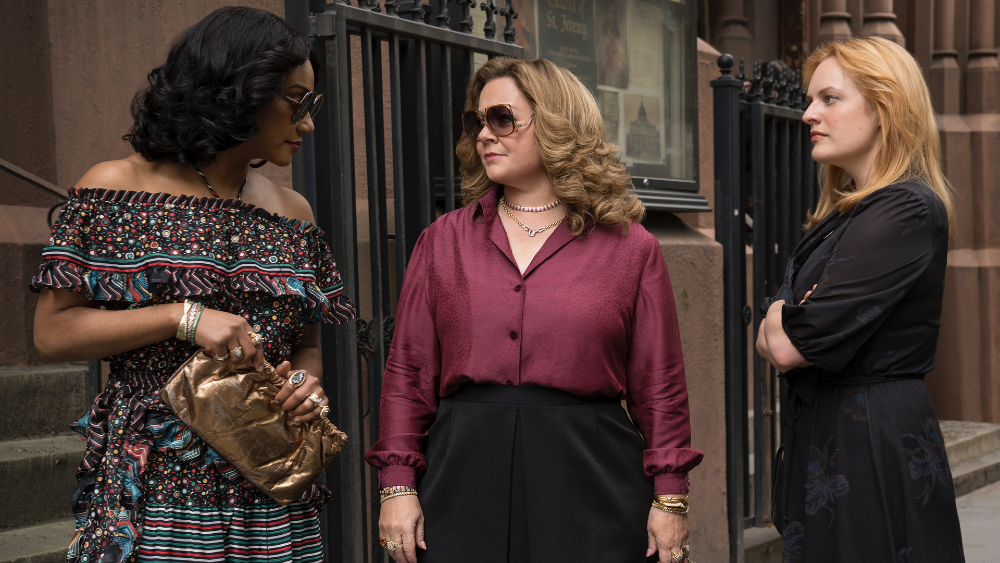
That said, my problems with The Kitchen go far beyond the content or the solid premise – to me, it’s as much or more about the tone and pacing. The movie just feels like a lot of dull and disjointed scenes that don’t always connect into a story, leading to a third act twist that feels both forced and obvious at the same time. To me, Berloff comes off as very green as a director, unable to properly transition things like tone and tension from her screenplay onto the screen. Gangster films rely so heavily on tension, so when that aspect is lacking, the rest follows suit.
Essentially, The Kitchen is a movie that I wanted to like more than I actually did. It’s not a terrible movie and even my initial feeling that it’s a disappointing waste of talent can’t completely be blamed on Berloff either. For what it’s worth, it’s a daring and risky effort … just one that doesn’t necessarily deliver.
Rating: 5.5 out of 10


